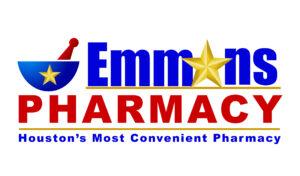Medications play a crucial role in managing various health conditions, from chronic diseases to acute illnesses. However, keeping track of your medications and ensuring you take them as prescribed can be a challenging task.
Medication management is essential for your overall health and well-being, and with the right strategies and insights, it can become a more straightforward and manageable process. In this article, we will explore some tips and insights to help you make medication management easy and effective.
- Understand Your Medications
The first step in managing your medications effectively is to understand what you are taking and why. Take the time to discuss your medications with your healthcare provider. Ask questions about their purpose, how they should be taken, and any potential side effects. Understanding the importance of each medication can motivate you to stick to your treatment plan.
- Create a Medication List
Maintaining a comprehensive list of all your medications is essential. Include the medication name, dosage, frequency, and the reason for taking it. This list will serve as a reference for both you and your healthcare provider. Keep a physical copy in your wallet or purse and a digital version on your phone or computer for easy access.
- Use Pill Organizers
Pill organizers are excellent tools for simplifying your medication routine. They come in various sizes and designs, including daily, weekly, and monthly options. Organize your medications in these containers according to the prescribed schedule. This helps you remember to take your pills and prevents accidental double-dosing.
- Set Reminders
In our fast-paced lives, it’s easy to forget to take medications on time. Utilize technology to set up reminders on your smartphone or computer. You can use built-in calendar apps, medication management apps, or even simple alarms to alert you when it’s time to take your medications.
- Sync Medications
If you’re taking multiple medications, try to align their schedules. Taking several pills at once can be more convenient than spreading them out throughout the day. However, consult your healthcare provider before making any changes to your medication schedule to ensure it’s safe and effective.
- Keep Medications Accessible
Store your medications in a place where you will easily see and remember to take them. Avoid keeping them out of sight, as this may lead to forgetfulness. Be mindful of medication storage requirements, such as keeping some medications in the refrigerator or away from direct sunlight.
- Monitor Side Effects
Stay vigilant for any side effects or adverse reactions to your medications. If you notice anything unusual, contact your healthcare provider immediately. Early detection and communication can help prevent more severe issues.
- Refill Medications on Time
Running out of medications can disrupt your treatment plan. Keep track of when you need refills and request them well in advance. You might also consider setting up automatic refills with your pharmacy to ensure a continuous supply.
- Communicate with Your Healthcare Team
Your healthcare provider and pharmacist are valuable resources in your medication management journey. Don’t hesitate to reach out if you have questions or concerns. They can provide guidance, make adjustments to your medications if necessary, and offer support.
- Involve a Trusted Friend or Family Member
If you find it challenging to manage your medications independently, consider involving a trusted friend or family member. They can help you with organization, reminders, and keeping track of your medication list.
Conclusion
Medication management is a critical aspect of maintaining your health and managing various medical conditions. By following these tips and insights, you can make this process easier and more effective. Remember that open communication with your healthcare provider and pharmacist is key to ensuring that your medications are working as intended and that you are on the path to optimal health. Take charge of your medication management today for a healthier tomorrow.




